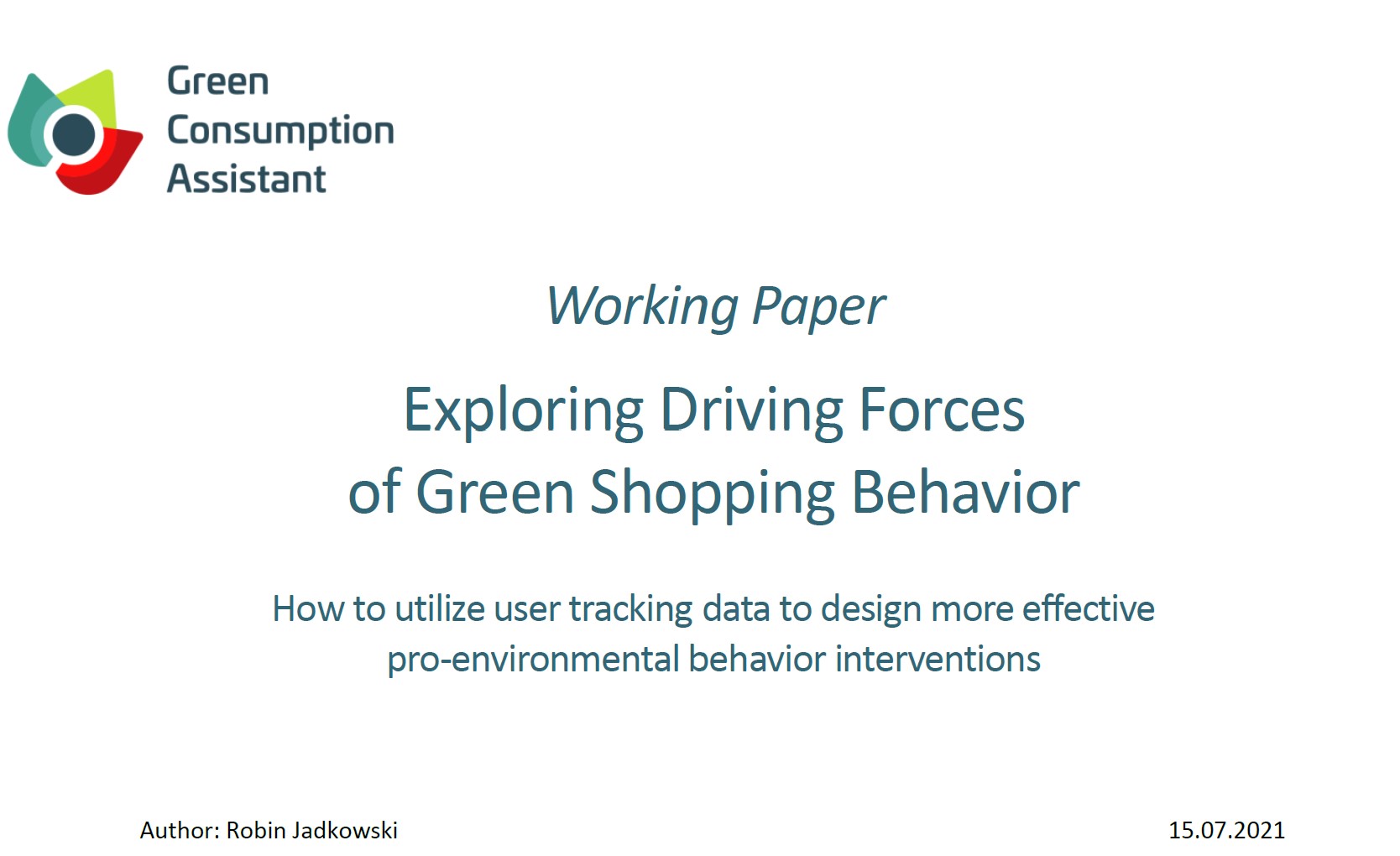In our second publication, Robin Jadkowski looks at psychological determinants that lead to more eco-friendly purchasing decisions. This involves developing a method that matches user tracking data from our GCA with survey data and investigating the relationship of different variables to each other that could intensify eco-friendly behaviour.
Abstract
This study evaluates psychological and socio-demographic driving forces of pro-environmental behavior (PEB) in an online shopping environment. Previous empirical studies substantiate the role and strengths of numerous psychological driving forces that influence individual PEB. However, the type of PEB operationalization is heterogenous, as well as the type and operationalization of the driving forces. Steg & Vlek (2009) stress the point that effective interventions have to be aimed at these driving forces and that the strengths and relationship differs for specific types of PEB. Up to date, studies that use actual behavior as operationalizations of PEB in online shopping environments are rare, therefore this study pursued two main goals: (1) Test a method to link user tracking data of a digital shopping assistant (as indicators for pro-environmental shopping decisions) with self-reported survey items; (2) Exploratively assess the relationship of four socio-demographic and 14 psychological variables that may act as driving forces for PEB. The click behavior of N = 35 beta users of an online shopping assistant was tracked over a period of five months and successfully linked to previously obtained survey data. It was not possible to reliably detect effects of the assessed driving forces – PEB relationship with the achieved sample size. In conclusion, this studies procedure revealed great potential for future research to evaluate the effects of psychological variables on PEB in a real shopping environment.

